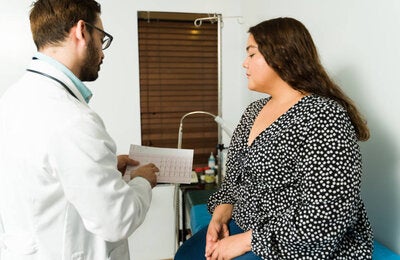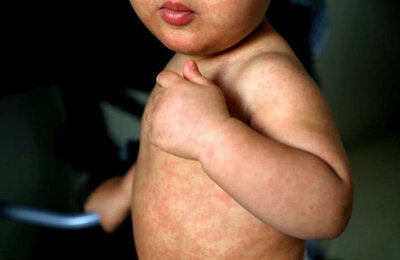
 A top official of the Pan American Health Organization / World Health Organization (PAHO / WHO) acknowledged today that "much more needs to be done" to ensure that the international outpouring of relief aid after Haiti's earthquake reaches the people who need it.
A top official of the Pan American Health Organization / World Health Organization (PAHO / WHO) acknowledged today that "much more needs to be done" to ensure that the international outpouring of relief aid after Haiti's earthquake reaches the people who need it.
Large numbers of people in need and organizations sending aid pose a major challenge for effective distribution
Washington, D.C., Jan. 20, 2010 (PAHO) - A top official of the Pan American Health Organization/World Health Organization (PAHO/WHO) acknowledged today that "much more needs to be done" to ensure that the international outpouring of relief aid after Haiti's earthquake reaches the people who need it.
"Getting food and water and other necessary supplies to the surviving population-and medical care to injured survivors-is proving in many ways to be more difficult than digging through damaged buildings to rescue people who were trapped in the ruins and the rubble," said Dr. Jon Andrus, Deputy Director of PAHO.
He said one of the main reasons for this difficulty is that the number of survivors is so much greater. In addition, Haiti's transportation and communication infrastructure was already weak before the earthquake.
"Another reason is the diversity of aid-sending organizations," Andrus said. "Although the United Nations is working to coordinate the response, relief aid is coming from different countries around the world, from different agencies of the same country, from individual communities, from nongovernmental organizations, and from different agencies of the U.N. And on top of all this there are concerns about security."
Andrus spoke following news of a 5.9-magnitude aftershock in Haiti this morning. He said PAHO's Emergency Operations Center had not received reports of additional damage or loss of life.
The latest rescue count shows that 121 people have been saved by rescue teams, a record following an earthquake.
"Countless more have been rescued by Haitians working with no equipment at all," Andrus added.
There are now 43 search-and-rescue teams in Haiti, made up of 1,820 rescue workers and 175 dogs searching for survivors in affected areas.
Andrus acknowledged, however, that efforts to coordinate the delivery of other forms of relief are beset by problems.
"We know, for example, that the Haitian airport has so far handled more than 600 aircraft in the last week. Hundreds of planes are still waiting for landing slots. Planes bringing essential water, food and medical aid are being prioritized, but the system is extremely congested," said Andrus.
He said some donors have not made advanced arrangements for the unloading, storage, and distribution of their aid, and some aid teams have arrived in Haiti without arranging for their own food, lodging, and transportation needs, "putting stress on services that are already stretched and in short supply for Haitians themselves."
These are problems that are gradually being overcome.
"Are we satisfied with the job we are doing? Definitely not," Andrus said. "But progress is being made. Think of what we started with when the world came crashing down on Haiti. No roads, only rubble and dead bodies. No communication, only death and despair."
He said a sign of improved coordination was that the U.N.-led Logistics Cluster is now coordinating with the U.S. Armed Forces and the U.N. Stabilization Mission in Haiti (MINUSTAH) to establish additional lines of communication, facilitate air traffic control and coordinate the deployment of military resources.
Other new developments in the relief effort include:
- The World Food Program is bringing additional warehouse capacity for emergency supplies.
- The road to the south pier at Haiti's main port has been repaired and is now fit for heavy machinery.
- The port of Barahona in the Dominican Republic is being used to relieve congestion at the airport in Port-au-Prince. This base in Barahona will be used to transport supplies to the southern Haitian coast, where several towns were hit hard by the earthquake.
- The U.N. Logistics Cluster is setting up temporary accommodations for another 200 humanitarian personnel.
- The fuel situation is improving: 10,000 gallons of fuel is expected to be delivered to the U.N. logistics base today.
- PAHO received a truck w fuel to replenish the PROMESS tanks (central medical supply, medicines and cold rooms for vaccines) from Santo Domingo with almost 5,000 gls last Friday and provided 1,300 gals to HUEH .
- PAHO is distributing the medicines and vaccines, medical supplies and blood to the functioning public hospitals and the field and temporary hospitals that have been organized.
"You can see from these kinds of examples the challenges that are being overcome," Andrus said.
There are now 18 permanent health facilities and temporary field hospitals functioning, with other health facilities being sent to Haiti, Andrus said. The USNS Comfort medical ship, which has a 1,000-bed capacity, arrived in Haiti this morning. Andrus said the Comfort will help meet some of the demand for medical attention that has overstressed hospitals, clinics, and mobile medical units on the ground.
A number of field hospitals have now been established and are also providing much-needed medical services. They include an Israeli field hospital, a Russian military hospital, a Nicaraguan military hospital, and additional field hospitals arriving from Mexico, Indonesia, Turkey, France, Doctors without Borders, Indonesia, and the United States.
In addition, makeshift health and triage facilities have been set up at different locations, and patients have been evacuated to Jamaica, Martinique, the United States (Miami) and the Dominican Republic. Hospitals in the Dominican Republic near the border with Haiti have been overwhelmed and are running out of specialized medical supplies, Andrus said.
PAHO, working out of its PROMESS warehouse near the airport in Port-au-Prince, is purchasing as well as soliciting and receiving donations of medicines and blood for health facilities and agencies that are providing health services to the Haitian population.
PROMESS, Haiti's main medical storage and distribution facility, is managed by PAHO/WHO. PAHO's permanent office in Haiti has 52 full-time staff who provide technical advice and support to the Ministry of Public Health and work throughout Haiti year-round.
"We were on the ground in Haiti before the earthquake, and we will be there after many relief agencies have gone," Andrus said.
PAHO/WHO has sent an additional 20 international experts into Haiti to assist relief efforts and is providing additional support through its country office in Santo Domingo, the Dominican Republic, and through a temporary field office in the Dominican city of Jimaní, near the border with Haiti.
PAHO Director Dr. Mirta Roses is scheduled to travel to both Haiti and the Dominican Republic this week to assess and assist relief efforts focused on health.
PAHO was established in 1902 and is the world's oldest public health organization. It works with all the countries of the Americas to improve the health and quality of life of the people of the Americas and serves as the Regional Office for the Americas of the World Health Organization (WHO).
Links
- PAHO Disasters website
- Donate to Haiti Earthquake Relief
- Twitter Emergency Operations Center
- PAHO YouTube Channel
- PAHO Facebook Page
- Twitter: PAHO/WHO
For more information please contact: Donna Eberwine-Villagrán, Tel. 202 974 3122 or Daniel Epstein, celular Tel. 202 316 5679, Communications, KMC.



